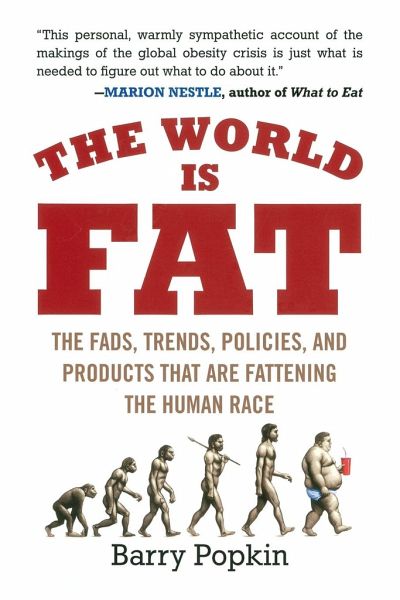Nicht lieferbar

The World Is Fat
The Fads, Trends, Policies, and Products That Are Fattening the Human Race
Versandkostenfrei!
Nicht lieferbar
A compelling look at the global trends that have led to today's obesity crisis The planet's 1.6 billion overweight people by far outnumber the 700 million who are undernourished. This figure would have seemed ludicrous just fifty years ago. As a result of unprecedented trends in technology, globalization, government policy, and the food industry that are changing how we eat, drink, and move, we now live in a world populated by overweight people with debilitating health problems. In this fascinating look at the striking changes in both our lifestyles and food system since World War II, Barry Po...
A compelling look at the global trends that have led to today's obesity crisis The planet's 1.6 billion overweight people by far outnumber the 700 million who are undernourished. This figure would have seemed ludicrous just fifty years ago. As a result of unprecedented trends in technology, globalization, government policy, and the food industry that are changing how we eat, drink, and move, we now live in a world populated by overweight people with debilitating health problems. In this fascinating look at the striking changes in both our lifestyles and food system since World War II, Barry Popkin shows how present options for eating and drinking- especially when combined with a dramatic reduction in physical activity-are clashing with millions of years of evolution to fatten the human race. Popkin argues that widespread obesity-and the chronic health problems that contribute to the bulk of deaths in the world-is less a result of poor dietary choices than about a hi-tech, interconnected world in which governments and multinational corporations have extraordinary power to shape our everyday lives.













